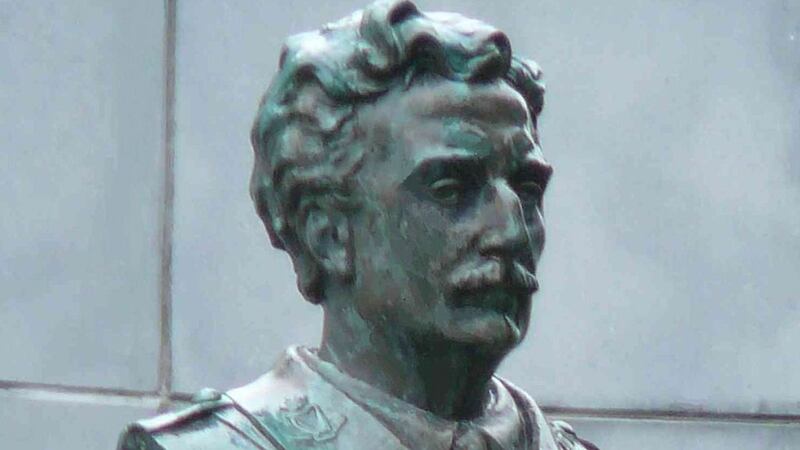At the General Assembly in Belfast, the Moderator [Rev John Irwin] referred to the great Flanders battle and said they had all learnt that Ulstermen, as well as other Irish regiments, were engaged in the fighting.
There was one distinguished member of another Church who had fallen. The announcement had just come to him that Major William Redmond, MP [Nationalist, East Clare] had fallen in that struggle. He thought it was surely a gracious thing as apart from any political differences, the men of Ulster and Presbyterians of Ireland should recognise a fine type of character, a gallant man and a man who set a fine example to those of their own Faith and his own Party of loyalty to the Empire and who had now made the supreme sacrifice. He thought it would be a gracious thing that at least some message of sympathy should be sent to those nearest to him. (The Assembly duly sent a letter of condolence to Major Redmond’s widow.)
MP’s Last Speech a Call for Irish Unity
Speaking in the House of Commons on March 7, the memorable night of the withdrawal of the Irish Party from the Commons as a protest against Mr Lloyd George’s surrender to Ulster Unionists, Major Redmond made a remarkable speech. If anything could strengthen the resolve of the Irish troops at the front to do their duty it would be a feeling that a better and a newer chapter was to be opened and that their country was to be given self-government. He did not think England would deny Home Rule if Ireland demanded it unitedly. He believed with all his heart and soul that the whole instinct and desire of the Catholic race was that there should be an end to the struggle between North and South. (Cheers.) He appealed to Sir Edward Carson…in the name of men who had died and of men who were dying. They knew they could trust their countrymen in the South. There was nothing he (Major Redmond) would not do, no length to which he would not go to meet their real objections and secure the confidence of his fellowcountrymen in the North. (Willie Redmond, a Nationalist MP popular with many Ulster Unionists, appealed passionately for unity and reconciliation in Ireland in this, his final Commons speech. He returned to the front, seemingly determined to make the supreme sacrifice and was fatally wounded leading his Irish troops over the top.)
